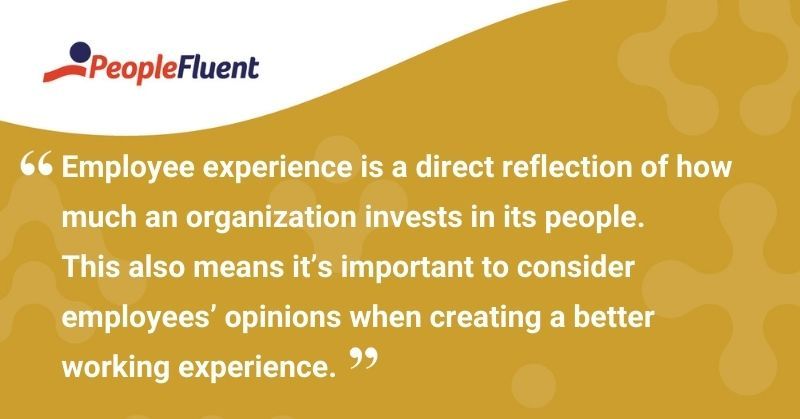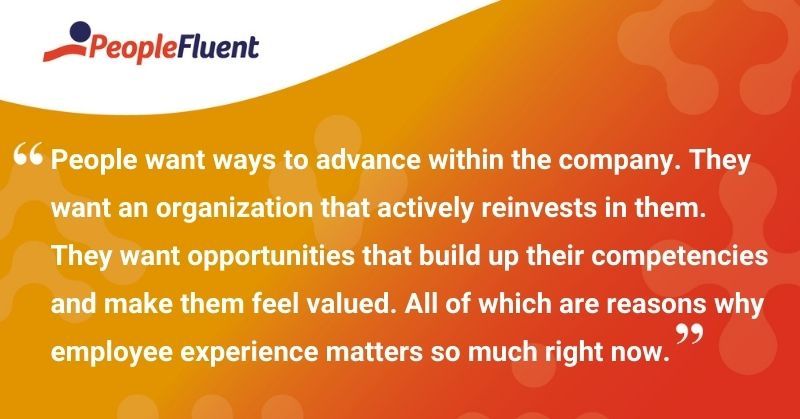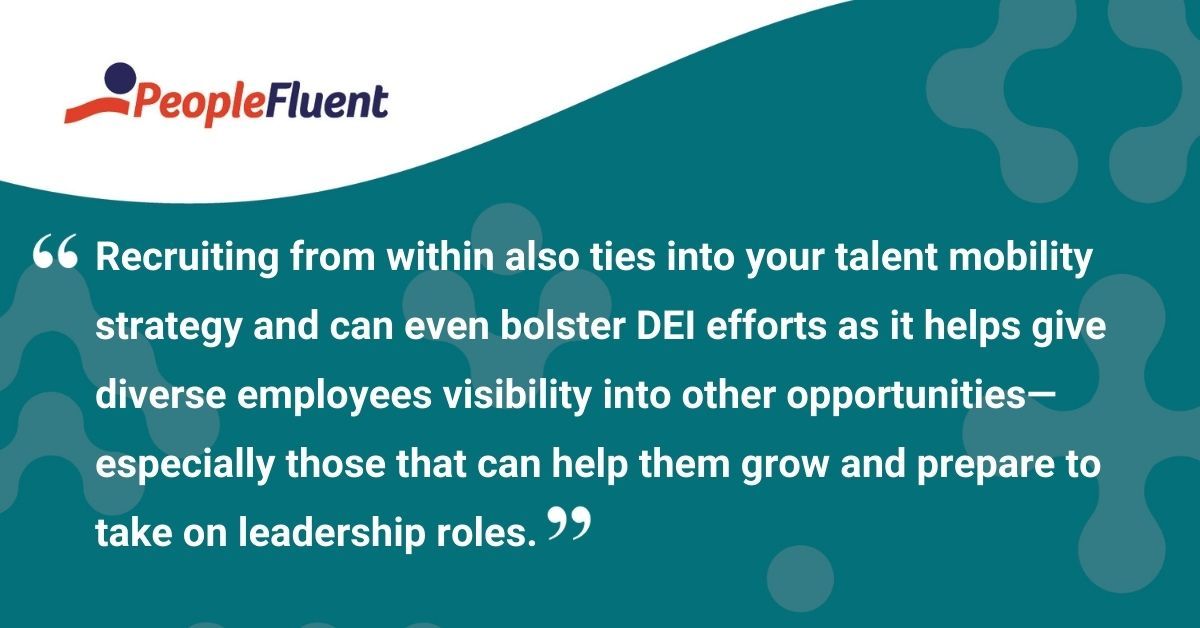Published: May 20, 2021Time to read: 5mins Category: Insights
Employee Experience: How to Manage Before Day One… and Beyond
Did you know that 96% of HR and hiring professionals say employee experience has become more important than ever? It’s no surprise that a report from LinkedIn found it to be one of the four trends reshaping how companies hire in 2021. Keep reading to find more insights about how employee experience connects with recruitment to help your organization hire and retain better talent.
Josh Bersin recently stated that talent acquisition, as a whole, is going to change. Traditionally, hiring and recruiting were sales-based. A recruiter would typically seek out talent and try to sell them on the company. This is still true, but recruiters and hiring managers have to focus on more than just selling the company to a candidate. They need to understand what each candidate is interested in and if they’re a potential fit for the business as a whole.
Will they fit into the company culture? Do their career goals align with where the organization wants to go in the future? These are important questions recruiters need to be prepared to answer.
And that’s where employee experience enters the picture...
What Is Employee Experience?
Employee experience includes everything an employee (or candidate) observes, feels, and interacts with at your organization. This could be the HR department, L&D initiatives, and/or recruitment efforts. It goes further than this, of course, but employee experience is a direct reflection of how much an organization invests in its people.
This also means it’s important to consider employees’ opinions when creating a better working experience. Let’s take a look at why this is important and how you can offer your folks a winning employee experience.

YOU MIGHT ALSO LIKE | ‘How to Attract the Next Generation of Talent’
Why Employee Experience Matters Now More Than Ever
With an expanding labor market (e.g. 27% more jobs in the US than in 2020, according to a recent Bersin podcast) and a shortage of top talent, organizations are especially hard-pressed to retain employees. Add a few other factors into the mix: new positions are being created en masse, many companies are hiring fully-remote workers (with no sign that’ll change any time soon!), and Baby Boomers are exiting the workforce in droves.
So, what does all of that mean? For starters, it means organizations are losing a large portion of skilled workers (the Boomer generation). And, the remote workers who are bound to replace them could miss out on company culture unless HR and business leaders put more effort into engaging employees.
These changes have accelerated the need for leaders to focus on building internal mobility programs in order to create a pipeline of qualified candidates and fill mission-critical roles. Not only does this allow companies to diversify their recruiting and candidate sourcing efforts, it’s a great way to create a better employee experience.
People want ways to advance within the company. They want an organization that actively reinvests in them. They want opportunities that build up their competencies and make them feel valued. All of which are reasons why employee experience matters so much right now.

KEEP READING | ‘Recruitment After the Pandemic: A Major Opportunity for Improvement’
The Benefits of Getting Employee Experience Right
While we believe a great employee experience starts with recruitment, your talent management and tech strategies will inevitably inform one another once you’ve sourced and hired top talent.
Internal recruiting is one of the most important things to encourage during the transitions your company might be facing today. After all, if you don’t allow employees to grow and progress in a different department, they’ll do so at a different organization. This only hurts retention and the wider business goals.
As for the benefits of getting this right, it improves retention (e.g. employees stay 41% longer at companies with high internal hiring vs those with low internal hiring), accelerates productivity and the hiring process, and boosts employee morale—all important for creating a great experience.
Employee experience also ties into your talent mobility strategy and includes other facets of talent management like compensation, succession, and training. It can even bolster DEI efforts as it helps give diverse employees visibility into other opportunities—and what your company has to offer them. It’s especially helpful for those employees who want to grow with your organization and take on leadership roles.
PeopleFluent solutions help with all the above and—when used together—can create a more integrated, seamless employee experience. This is critical for enhancing the modern talent journey and the company culture. As we move forward into a new way of working, getting HR tech and talent strategy right is essential.

RELATED READING TO DOWNLOAD TODAY | ‘The Modern Talent Journey: Charting the New Ways of Work’
Find out how our tools can help your organization create an award-winning employee experience—and secure your company as an employer of choice. Talk to the experts today!
Discover How Recruitment Lets You Find the Right People—Fast
PeopleFluent helps you fill critical roles with the right people and the right skillsets on a global scale. At the same time, it helps you build your employer brand and sharpen your competitive edge.